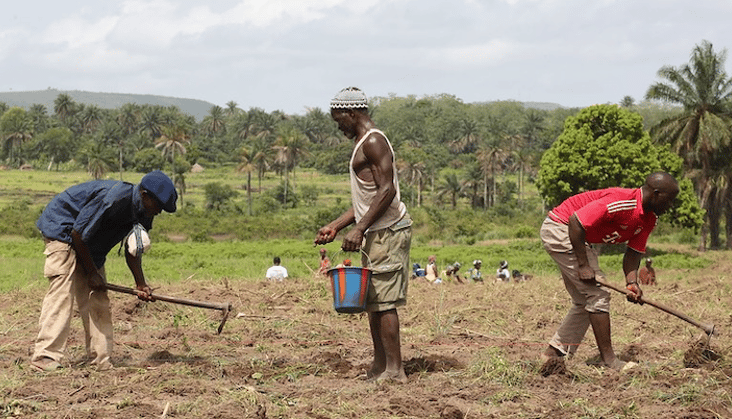Plantation Owners Decry Produce Taxes, Levies, Say they Stifle Food Security

The Plantation Palm Owners Forum of Nigeria (POFON) has expressed its discontent over the imposition of produce taxes and levies on certain agricultural commodities by state governments, asserting that such taxation undermines food security in the nation.
Emmanuel Ibru, the Forum’s National Chairman, articulated this concern while addressing journalists following the group’s meeting in Benin City.
Ibru, who also serves as the Chief Executive Officer of Aden River Estates Limited, an agro-industrial arm of the Ibru Organisation, contended that levying produce taxes on farmers would adversely impact food prices, particularly palm oil, within the Nigerian market.
He recommended that instead of imposing produce taxes, governments nationwide should foster a conducive environment for farmers, facilitating their access to land, resources, and security to enhance their productivity.
He highlighted that Nigeria, as the leading producer of palm oil in Africa and the fifth globally, must expand its cultivation to approximately 500,000 hectares to satisfy domestic demand and improve production efficiency.
The POFON chairman further emphasized the urgent need for Nigeria to cultivate about one million hectares of oil palm to remain competitive in the international market.
He remarked that this target is significantly below the production levels of Indonesia and Malaysia.
Ibru argued that the imposition of produce taxes by governments constitutes multiple taxation, as farmers and plantation owners are already subject to other levies, including income and land use taxes to state governments, among others.
While affirming that POFON is not opposed to its members paying taxes, he assured that members are willing to comply with legal and equitable tax demands from any state government.
Ibru, who acknowledged that investing in oil palm plantations requires patience and significant capital, further criticized the multiple taxation burdens placed on agricultural investors by governments.
He asserted that if the issue of multiple taxation is not addressed with the necessary attention, it could jeopardize efforts to maintain low and stable prices for red cooking oil and its derivatives in the country.









